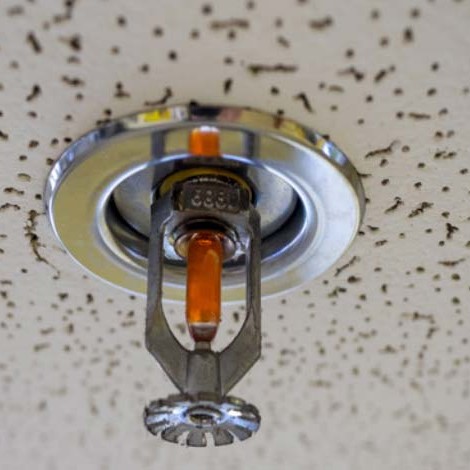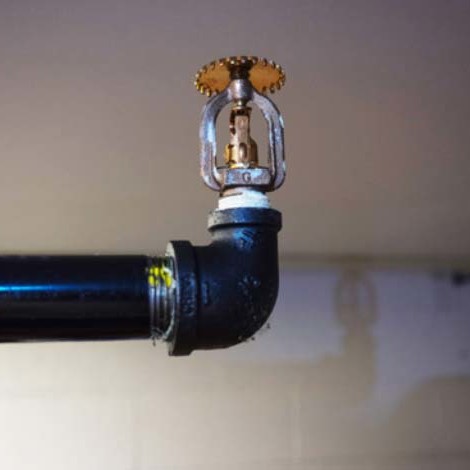Over 80% of fire deaths occur in the home. Home fire sprinklers can save lives and property from fire. They respond quickly and effectively to fire, often extinguishing the fire before the fire department arrives. Only the sprinkler closest to the fire will activate, spraying water on the fire.
Safety Tips
- Home fire sprinklers save lives and property. In many situations, a family who has survived a fire will also have their “home” to live in and enough of the items and space in their home to continue living their lives as they did before.
- The cost of a home fire sprinkler system in a new home averages $1.35 per sprinklered square foot totaling an amount similar to what is spent for carpet upgrades, paving stone driveway or a whirlpool bath. Source: Fire Protection Research Foundation Study 2013.
- A home fire sprinkler system can reduce the homeowner’s insurance premium.
- Fire departments typically use roughly 10 times as much water as a fire sprinkler would use to contain a fire. Source: Fire Protection Research Foundation Study 2010.
- Fire sprinklers are environmentally friendly. They can reduce the amount of water run-off and pollution, fire damage by up to 71%, and water usage to fight a home fire by as much as 91%. Source: FM Global and Home Fire Sprinkler Coalition Study 2010.
- Cigar smoke or burnt toast will not activate a fire sprinkler. Only the high temperature of a fire will activate the sprinkler.
- A home fire sprinkler system is easy to maintain. Just inspect your home to make sure the sprinklers are not blocked by something that would prevent the water from coming out such as paint and be sure the main control valve is never turned off.
- Home fire sprinklers are effective in cold and warm climates. Guidelines have been created for the proper installation of systems to avoid pipes freezing. A home fire sprinkler system should be winterized the same as you winterize a domestic water supply.
Facts
More than 2,500 people die in home fires each year.
If a home fire occurs, the risk of dying decreases by about 80% when the home is equipped with a fire sprinkler system.
And don't forget...
If MOVING into an apartment or condominium building, make sure common areas and individual apartments are sprinklered.
If BUILDING a new home or remodeling an existing home, consider installing a home fire sprinkler system.

Fire Sprinkler Systems
Because fire sprinklers react so quickly, they can dramatically reduce the heat, flames and smoke produced in a fire. Properly installed and maintained fire sprinklers help save lives.
Facts About Home Fire Sprinkler Systems:
- Home Fire Sprinklers can control and may even extinguish a fire in less time than it would take the fire department to arrive on scene.
- Only the sprinkler closest to the fire will activate, spraying water directly on the fire. According to the National Fire Protection Association (NFPA), in 84% of home fires where sprinklers operate, just one sprinkler is triggered.
- If you have a fire in your home, automatic fire sprinklers cut the risk of dying by 80% (source: NFPA).
- ln a home with fire sprinklers, the average property loss per fire is cut by about 70% compared to fires where sprinklers are not present (source: NFPA).
Keep Your Fire Sprinklers Working for You
- Never tamper with your fire sprinkler system or any other fire protection equipment. It not only puts you and other residents at risk, it is also a misdemeanor crime (RCW 9.40.100).
- Do not hang anything from your fire sprinkler heads or pipes. Sprinkler equipment is not designed to hold weight. In fact, the most common cause of sprinkler malfunction is adding weight.
- Keep the area around the sprinkler head clear of obstructions. Fire sprinklers spray water in a defined pattern over the fire. Obstructions may disrupt the spray pattern and reduce the effectiveness of the sprinkler in putting out the fire.
- Never paint sprinkler heads or cover them in any way as it could prevent them from working properly.
- Use caution when working around exposed sprinkler heads as not much force is needed to break them. Breaking them will release a large amount of water which can only be turned off by the fire department or sprinkler technician.
